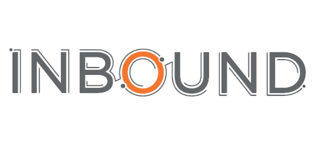Mezzanine @ Inbound ‘17: 5 Things We Learned


We’re a Hubspot partner so 2 Senior Marketing Directors and our General Manager attended 4 days of learning with Hubspot at their annual conference, INBOUND. This year we attended Partner Day as a bonus day of additional learning specifically targeted to partners. And, we are leaving SO excited! We can’t wait to share what we learned with the larger team and begin to roll out everything we learned to our clients to help them accelerate their revenue. Our heads are full and we need some time to digest fully but we wanted to share what stood out. We noticed the emphasis on certain subjects in addition to what we learned over the 4 days. The 5 themes we saw emerge:
Theme 1: Account Based Marketing
We have been hearing about Account Based Marketing (ABM) for a few years but it hit a crescendo this year. ABM strategically targets a few accounts or companies in a very personalized way. This is different from traditional inbound marketing which casts a large net across many companies and is impersonal. We use a mix of both and appreciate some of the tips and lessons learned as marketers navigate this approach.
Theme 2: The Alignment and Integration of Sales and Marketing
We have been talking about this for about a year but we haven’t yet seen it reach critical mass yet. A small portion of tech companies are creating a Chief Revenue Officer position that combines both the sales and marketing function under one senior executive. But, it’s been slow to gain momentum from other industries. Meanwhile, alignment is happening at lower levels in organizations and the two departments are working together more closely than before. It was nice to see that many sessions moved past the introductory concept of working better together and took the content to the next level by discussing metrics that matter and working together to decrease the average sales cycle by creating content that answers common questions.
Theme 3: The Rise of Facebook Advertising
Back in 2014 we started decreasing the amount of effort or investment into Facebook due to changes in the algorithm that hid updates from the timeline. Those days are over and we are talking about Facebook more than ever. In the last year, Facebook has invested significantly in their advertising platform and we’ve been experiencing better results at a lower cost than we see from Google Adwords. This is because Google Adwords delivers the ad when people are searching – so they have to know they’re looking for you or what they offer. Facebook eliminates that potential barrier by delivering ads to your customer persona without them necessarily searching for you. It means writing your ads differently, and we learned a lot from others on how to improve our efforts.
Theme 4: Chat (including Facebook Messenger)
Chatbots have been around and popular for a few years. But, they’re still gaining in popularity and moving beyond the chat widget in the website or a personal assistant like Siri. Artificial Intelligence, when combined with chat, is pretty compelling. But, we lose the human element in these engagements so we noticed a sub-trend around making your communications more human, even when automated (but that will be a whole other blog!).
Theme 5: Video, video, video
Gone are the days of high production value videos. Also, video is across all channels now and not limited to YouTube or Vimeo. People are using their iPhones to capture a message to post on social media or send in a personal email. Several vendors popped up in the exhibit hall to help you make videos and better track your metrics and engagement. We’re interested to see how our clients will take advantage of how videos have relaxed and become a communication channel unto themselves.
Each of our attendees also wanted to share what personally stood out for them over the 4 days:
Nikki: The world of SEO is changing and you can’t dabble in it anymore. It’s all in - and it requires investment and time. You need to use software. You can’t keyword stuff anymore – or just rely on tagging your website. What you measure is different. The traditional keyword strategy is gone and has been replaced by content bundles*. Finally, you need to do campaigns around your SEO like you would your products and solutions.
*Hubspot has a new product for this. Content Clusters – watch for them!
Kim: Produce great content. I know it sounds like a cliché. Here’s how. Do the SEO research. Give the content away for free and be creative in how you make it available. To PDF or not to PDF? It not about one blog or one piece of the puzzle and content can’t be created in isolation. Put some energy into the content and ask yourself, “What is the value? and What is the problem that you solve?” We’re all producing content so fast it can lose its value. Let’s all slow down, check our strategy and make sure it provides value.
Gayle: Marketers need more software than ever before. The Marketing Technology Landscape has grown to 5000 companies! Hubspot has realized it, hired Scott Brinker who compiles this infographic as their VP Platform Ecosystem and shifted their product strategy from “we’re a one-stop shop” to “we’ll integrate better than anyone”. The implications for SMB companies to spend more on technology to keep up when they often already have limited marketing budgets is significant. At Mezzanine, we have subscribed to more software and services in the last 9 months than any period since our inception in order to analyze our efforts, seek out a competitive edge and cut through all of the other marketing out there.
The team is already looking forward to next year’s conference. In the meantime, we’ll continue to digest everything we learned and begin to roll out the changes we know we need to make.
.png?width=2361&height=488&name=Mezzanine%20Logo_Horiz_RGB_on%20blue%20(1).png)
